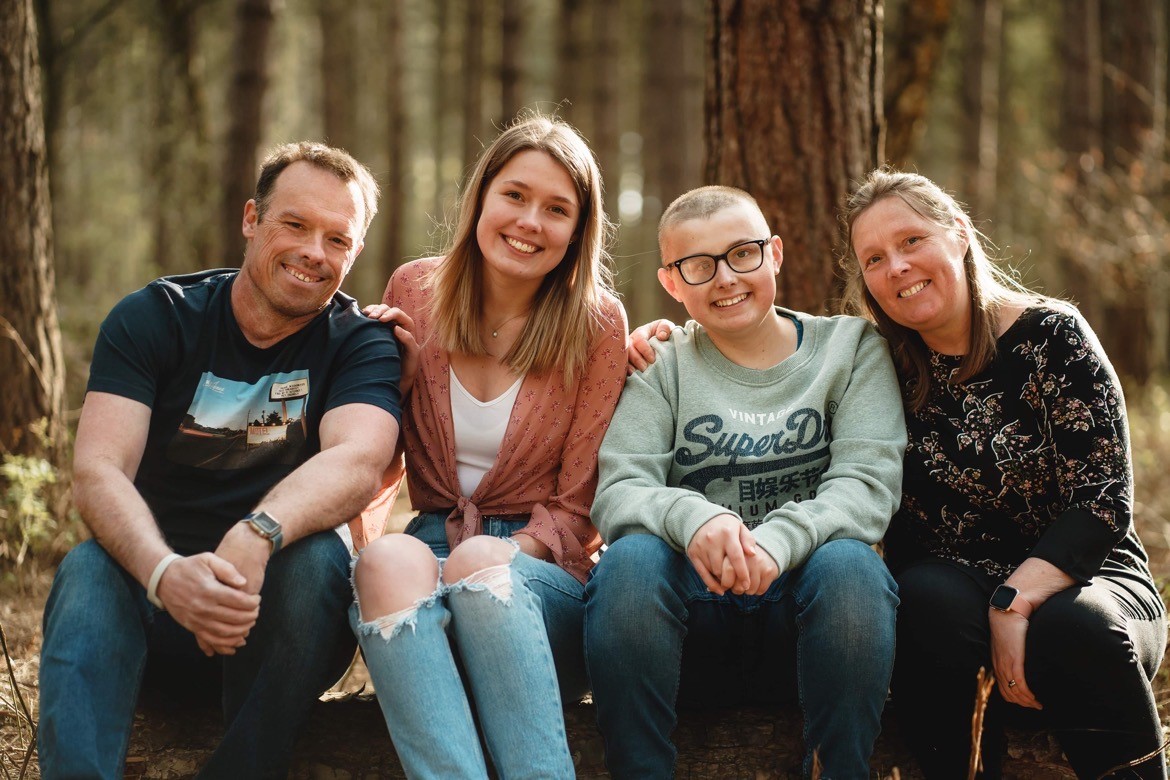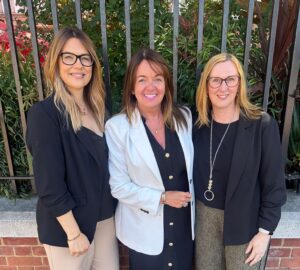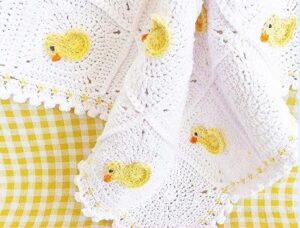Matty’s Story Begins
“Matty shared his story when he knew it would help others, now I’m doing the same.”
Alison, Steve and Molly lost Matty in 2022. He was 17.
Now fundraising in his memory, Alison wanted to share their story…
Diagnosis and Determination
“It sounds a bit mad, but it all started because Matty wanted to go on a segway. They were the ‘in thing’ at the time but he wasn’t heavy enough, so we were keeping an eye on his weight for that and it was going down.
He’d just started high school and didn’t seem to be settling, then had a few days where he was sick and complaining of headaches. He was having the odd day off school or being sent home but he’d then sit on his PlayStation, so I’d send him back.
In the end I took him to the doctors. We explained his symptoms and the GP asked about his vision and he said he had had a bit of double vision which was news to me. She said she’d book a scan in case and then handed me a folded sheet of paper.”
The sheet was a letter saying Matty was on a two-week pathway because he was showing signs of cancer.
Alison, a nurse and health visitor, was familiar with the process and so wasn’t overly concerned.
“I thought we’d go for the scan, and everything would be fine.”
Just before Christmas 12-year-old Matty was admitted to hospital for a CT scan.
“He had his scan, had some bloods, he was great with it all, very brave, and we were sent back to the ward to wait for the results. They told us we needed to wait for the consultant at which point I knew something was wrong.
They told us there was a mass, they didn’t say tumour, they said mass.
I remember following the doctor out of the room and asking, ‘so are you saying he’s got a brain tumour? He said that they hadn’t confirmed that it was cancerous yet ’ At this point cancer hadn’t even entered my head.
Soon after, tests confirmed that Matty’s brain tumour was cancerous, and he was sent to Nottingham for urgent surgery just a few days before Christmas.
“They removed the whole tumour and told us, when this works, it works. If it responds to treatment, it will be gone. If it returns, there wouldn’t be a lot they could do.
We’d bought him a blue laptop for Christmas that year but because of the surgery he couldn’t see anything.
I remember us laughing as he opened presents because we were shouting out what they were ‘it’s a blue laptop!’”
Matty then had an 18-month course of radiotherapy and chemotherapy.
“It made him very poorly but there were times when he was well – there was always a different treat every time he completed a round of treatment. Days out, activities, trips to places he wanted to go.
He was Harry Potter mad; he went on Mastermind for BBC Children in Need, he’d speak about his treatment and Rainbows Hospice on TV.
He loved cake. It was always cake, cake, cake! Every time he went for an MRI scan, we went to the cat cafe. We’d got cats at home but he still wanted to go for some reason so that became a thing.”
The family tried to return to some kind of normality, knowing that Matty would have regular check-ups and annual scans.
“He spent the next Christmas in hospital again. It was hard and horrible, but he was never miserable.
We didn’t wallow.”
Before the treatment he was an amazing footballer but couldn’t play after it so he took up table tennis and canoeing instead. He went back to school when he could, but he was always very tired.”
Relapse, Reality, and Remarkable Strength
Christmas came around again.
“We went off for his routine check-up. We were devastated, he’d relapsed.
I lost it in the room with the consultant that day. I just cried saying ‘I can’t lose my boy’ while he was sat there.
I just lost myself, I felt terrible, but it just felt so unfair after everything he’d already been through.”
Well versed in what came next, Matty braced himself for treatment.
“This time it was an injection in his head, it was the only option so every day we drove to Nottingham.
By then, they had told us he was palliative. We knew he was going to die. We talked about what he wanted. I was lucky we could do that, really.
We were driving along one day to an appointment, and he just asked me out of nowhere if I’d make sure the grass on his grave was cut. It caught me off guard every time he’d say something like that, and the reality would hit but I took the chance to ask him questions.”
Knowing his time was limited, the family decided to continue making memories, something that had been so important to them all throughout Matty’s treatment.

“We had so much fun, we really did. We went to Disneyland, Lapland, Hard Rock cafes everywhere – he loved a Hard Rock Cafe and bought a t- shirt every time, he did indoor skydiving.
He just loved life. And he lived life.
He was on the right side of cheeky, he knew how far he could take it and stopped just short.
We had words with one doctor who said they’d rather he didn’t zipline in Wales, Matty said he was dying anyway so what was the risk. There wasn’t really a comeback to that!
One day I asked him what was next, and he said to me he felt so lucky and that he thought he’d done it all.”
After the Loss: Grief and Healing
Shortly after, Matty went for his routine appointment in 2021 at which the family were told the cancer was gone.
“It went, the cancer went, we couldn’t believe it, we’d been told it wouldn’t, and it had.
But three or four days before Christmas, Matty became unwell.
We’d only just been told the cancer wasn’t there again, but he wasn’t well. His short-term memory loss was gone, he was taking ages to eat his dinner, he just wasn’t right.
He was discharged home on Christmas morning, but he was bad, but we just kept thinking to ourselves at least he’s not got cancer, we were almost repeating it to ourselves.”
The new year started but Matty was still unwell.
“He didn’t get better really and I was shattered, I wasn’t sleeping. I was awake all day and night at his bedside. We both went to stay at a hospice for some respite. Then we saw his consultant and she said she thought he was dying.
We couldn’t get our heads around it – the last tests showed he didn’t have cancer. We came home again, he wanted to die at home and we tried to facilitate this he was very agitated but I couldn’t cope.
I wanted to just be Matty’s mum, not his nurse.”
The family returned to the hospice and Matty died ten days later.
“He didn’t have any scans or tests before he died, we think it was the treatment and its side effects that he died of in the end.”

Alison, Steve and Molly started to try and process their loss.
After initially feeling as though she was coping, Alison decided to call The Bodie Hodges Foundation.
“I’d had counselling before, and it hadn’t agreed with me. I didn’t really think it would work.
But I reached rock bottom, it had just been Matty’s birthday, we’d both had to go back to work. It had caught up with me.
It was a difficult call to make. I was still quite reluctant. I needed someone who understood.
I’m so glad I called that day.”
Alison now has regular 1:1 sessions with her counsellor, Nicola.
“If it wasn’t for Nicola I don’t know how I would of coped. Losing a child takes you to the darkest of places.
I did just sit and cry and ask why for the first few weeks. I was never judged; I was just listened to. And I know Nicola hasn’t lost a child but she just gets it. She gets me.
Grief doesn’t come with a handbook, but The Bodie Hodges Foundation has given me the tools to deal with it.
I have dark days, I have down days, but I’ve learned that’s ok and I’ve also learned that I need to know my own limits. I’d beat myself up about the bad days before, but now I know that’s all part of it and I allow myself to have them.”
Alison credits her sessions at Bodie’s House with helping her cope with life after losing Matty.
“I’ve learned so much from coming here. “This place teaches you that you’re not alone. It’s somewhere you learn to accept your grief.
I know it will never leave me, but I also know I am making progress at my own pace.
I had some sock monkeys made – Matty loved monkeys – it sounds mad, but it was a massive step for me. His clothes are all still in his room, I can’t deal with them, but I felt like I could do the socks. So that’s where I started.”
Keeping Matty’s Memory Alive
In April 2025, Alison and Steve will run the London Marathon to raise money for Bodie Hodges.
The couple have set up one of the charity’s Forever Loved Funds. A Forever Loved fund has its own name and logo so families can be supported by The Bodie Hodges Foundation fundraising team, whilst not having to worry about setting up their own charity.
The family hope the money they raise can go towards a support service for older siblings.
Matty’s sister Molly was 22 when he died. Now 25, she is a qualified solicitor.
“Molly was offered 1:1 support but she didn’t want it, and I understand that. So, we want to raise money to fund something similar to the art class for mums or Chips and a Chat for dads.
The Bodie Hodges Foundation does offer support for siblings, but there is less available for older brothers and sisters. We both know how the groups have helped us. The informal setting, the fact there is no pressure to talk about your loss but knowing that you are around people that get it really helps.
Siblings often try to protect their parents from their grief, and parents do the same back sometimes.
We’d really like to be able to offer something to other siblings Molly’s age so it’s there when it’s needed.”
Alison is nearing the end of her 1:1 sessions but says she will continue to attend the art group, fundraising and will always be grateful for the support she has received.
“Because of The Bodie Hodges Foundation, I’ve allowed myself to smile again. I felt guilty to begin with. When you lose a child, you do lose a part of you too, but Matty would want me to be me, and I am a positive and happy person.
He’d want me to be sad sometimes too and I am, but I know he’d want me to be happy because that’s just how he was.
He was so considerate and lovable. He had such an impact on everyone who knew him – and through his Forever Loved fund, he can carry on doing so.”








